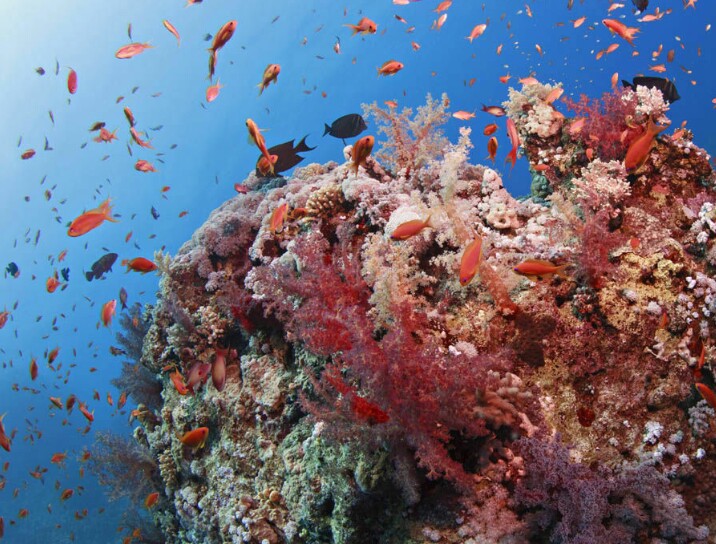Question of the Week: Do Fish Pee?
By Arendse I Lund, on 2 October 2018
I seem to be asked a lot of fecal facts when talking to visitors in the Grant Museum, but here’s a new one to me: Do fish pee? Although fish are certainly discrete about it, they do!

At least one of these wee fish is doing its business (Image: Oliver Dodd)
Perhaps the first question is whether fish drink. Freshwater fish will passively intake water from their environment and then, as their insides are saltier than their surroundings, will excrete a diluted urine. Saltwater fish have to drink water more actively and, as their surroundings are saltier than their insides, will expel a more concentrated urine.
Why all the fuss about fish pee? Although you might think it’s gross that you’re swimming through the collected urine of the ocean’s creatures, this pee is critically important to the nutrient budgets of different ecosystems. Fish have kidneys which produce urine containing ammonium, phosphorus, urea, and nitrous waste. The expelled urine encourages plant growth on coral reefs; downstream benefits also include increased fertilization of algae and seagrass, which in turn provides food for the fish.

Coral reef biomass is correlated to species diversity (Image: Vikram Jadhav)
Fish urine thereby plays an important role in the biodiversity of coral reefs. If the supply of fish urine falls—through overfishing, for example—reef biodiversity suffers. A study in Nature Communications showed that overfishing “is reducing the capacity of coral reef fish communities to store and recycle nutrients by nearly half” and concluded that “rebuilding coral reef fish communities is of critical importance for food security and the livelihood of billions of people.”
As coral reefs rely so desperately on urination, life really becomes a fish’s creation. Nutrient recycling is an imperative in coral reef ecosystems as it is quite difficult to acquire new nutrients. Fish are the best recyclers around. Overfishing doesn’t just reduce the total number of fish species, it removes the largest fish (and their steady stream of pee) from the equation. The ecosystem suffers as a result.
While we can certainly all appreciate the trickle-down effects of fish urine, I’ll end with a quote from a poem by Sean Tyler B, which asks an important question:
Does a fish go pee
when it’s swimming in the sea?
Does it ever get the notion
when it’s swimming in the ocean?
The answer is a resounding yes.
 Close
Close

